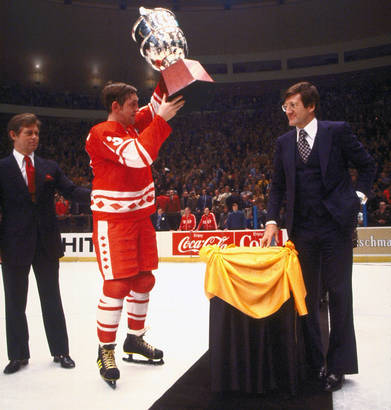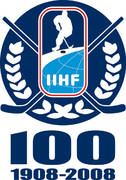

Story #36 Soviets embarrass NHL All Stars 6-0 to win Challenge CupFebruary 11, 1979 — New York
North Americans just seemed slow to learn — or perhaps they were just stubborn. Canadians dismissed World Championships results from the 1950s and ‘60s leading up to the 1972 Summit Series — and were given a rude awakening. And the NHL didn’t seem to learn anything from the results of that historic, eight-game showdown in 1972, either.  That set the stage for a dramatic final game — what more could the NHL have asked for? Shockingly, the Soviets were so confident in victory that they even gave their number-one goalie a rest and started their back-up! That is, Vladislav Tretiak watched the final game from the bench and Vladimir Myshkin played the full 60 minutes for CCCP. Myshkin didn’t have much to do. The NHL players fired 24 shots at him, and not one got past him. About the Top 100 StoriesAs part of the IIHF's 100th anniversary celebrations, www.IIHF.com is featuring the 100 top international hockey stories from the past century (1908-2008). Starting now and continuing through the 2008 IIHF World Championships in Canada, we will bring you approximately three stories a week counting down from Number 100 to Number 11.
The Final Top 10 Countdown will be one of the highlights of the IIHF's Centennial Gala Evening in Quebec City on May 17, the day prior to the Gold Medal Game of the 2008 World Championship.
These are the criteria for inclusion on this list: First, the story has to have had a considerable influence on international hockey. Second, it has to have had either a major immediate impact or a long-lasting significance on the game. Third, although it doesn't necessarily have to be about top players, the story does have to pertain to the highest level of play, notably Olympics, World Championships, and the like. The story can be about a single moment — a goal, a great save, a referee's call — or about an historic event of longer duration — a game, series, tournament, or rule change. |
 Click here for the 100 Top Stories
|
|






